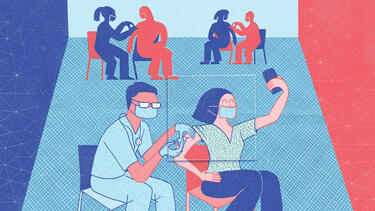Public Policy
Can Industrial Policy Help Revive Struggling Regions?
A new paper co-authored by Yale SOM’s Cameron LaPoint looks at an effort in 1980s Japan to narrow economic inequalities between geographic regions, in order to understand the potential impact of the similar U.S. CHIPS and Science Act, enacted in 2022.
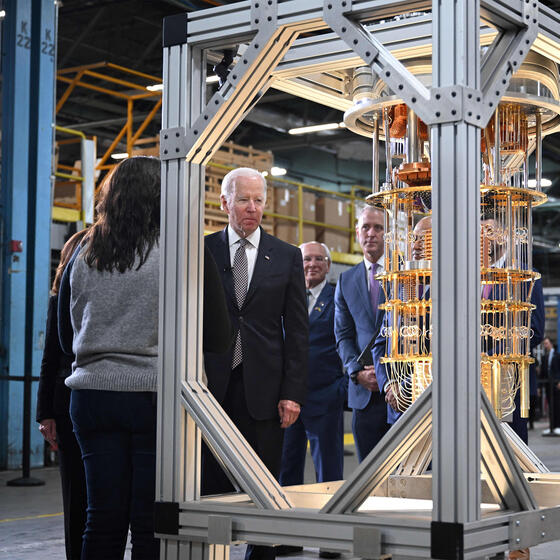
Controlling the Virus Is the Key to Reducing Inflation
Yale SOM’s William English, a former economist at the Federal Reserve, explains the role of COVID-19 in the spike in prices, considers how policymakers can respond, and confronts the sheer uncertainty of the times.
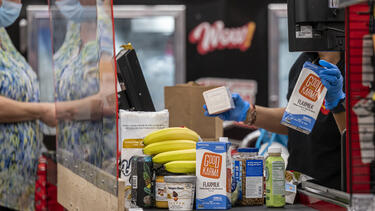
We Need to Acknowledge the Problem of Senior Poverty
Joe Seldner ’84, founder of the Senior Poverty Prevention Project, calls for problem solvers to take on an issue getting little attention.

The Compromise Infrastructure Bill Reflects the Public’s Priorities
The infrastructure bill that advanced in the Senate this week doesn’t please partisans on either side. But an analysis from Yale SOM’s Jeffrey Sonnenfeld shows a rough correspondence with the objectives favored by the public in polls.
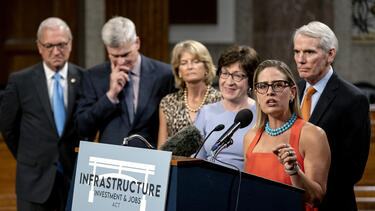
How the ‘Nixon Shock’ Remade the World Economy
In a new book, Yale SOM’s Jeffrey Garten explores Richard Nixon’s decision to delink the dollar from gold, which remade the global monetary system in an instant.
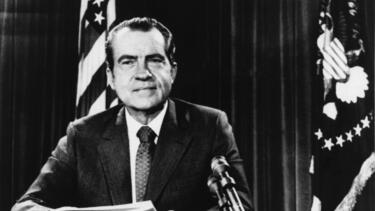
Why Silence Is Not Golden for CEOs
Yale SOM’s Jeffrey Sonnenfeld writes that companies have an interest in preserving democracy and other fundamental social issues, and silence is not an option for responsible CEOs.

Can ‘Sin Taxes’ Do a Better Job?
A new study co-authored by Yale SOM’s Katja Seim examines how successful the uniform liquor tax in Pennsylvania is at generating revenue and discourage drinking, and concludes that a uniform tax leads to higher prices on products bought disproportionately in high-income areas when compared to a more variable approach, effectively subsidizing liquor consumption in low-income areas.

Social Media Is Addictive. Do Regulators Need to Step In?
Yale SOM’s Fiona Scott Morton and her co-authors argue that smarter and more robust antitrust enforcement can help, by making room for new social media platforms that promote themselves as healthier alternatives.

Bringing Private-Sector Values to the Public Sector—and Vice Versa
Professor Teresa Chahine talks with Roderick Bremby, who led a dramatic turnaround of Connecticut's Supplemental Nutrition Assistance Program. Today, he is an executive at Salesforce, which has provided contact tracing and vaccine management during the COVID-19 pandemic.
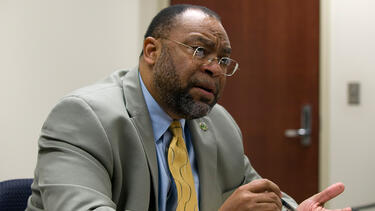
Video: Police-Citizen Trust Is a Path out of the Crisis
The murder of George Floyd and other high-profile incidents of police violence are part of a larger crisis of trust between U.S. police forces and the communities they protect. Yale SOM’s Rodrigo Canales says that the solution is for police organizations to think of their mission not simply as reducing crime but as building trust with citizens.

How Connecticut Accelerated Its Vaccinations
Josh Geballe ’02, Connecticut’s chief operating officer, explains the state’s controversial decision to switch to age-based eligibility for COVID vaccines—and says it likely saved lives.
